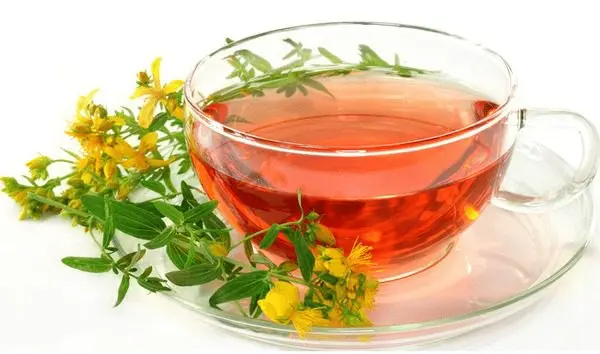Contents
Hello dear readers! In the article “St. John’s wort: benefits and harms, interesting facts” information about the benefits and contraindications of a popular medicinal plant.
This medicinal plant was used in the Middle Ages. In those days, people believed that it was able to fight 99% of diseases. Until now, this perennial plant is considered one of the best types of medicinal herbs that effectively prevent not only diseases of the body, but also the soul.
St. John’s wort herb: medicinal properties and contraindications
It is one of the most famous medicinal plants in traditional medicine. Perhaps this is because it has a wide range of medicinal properties. Grows in meadows, glades and forests. It can also be grown at home.
Due to its rich composition of minerals and vitamins, it is able to perfectly remove toxins from the body and perform other health-improving functions.
The plant has several hundred species, but perforated (ordinary) is more often used. It is widely used in herbal medicine. Has gained popularity among the people, it can be brewed like tea. Do you know what problems in the body St. John’s wort will help to cope with?
Antidepressant and tranquilizer
Many people who take an infusion, decoction or tea from the herb St. John’s wort confirm the effectiveness of its sedative properties. Some even jokingly say that after drinking healing tea, they see colorful dreams at night. Of course, this is a metaphor, but the truth is that this plant is a great antidepressant.

It is usually used for nervous system exhaustion, anxiety, depression and insomnia. St. John’s wort owes these properties to inhibitors of the distribution of serotonin, the lack of which is responsible for the poor health of a person.
Those who use St. John’s wort should keep in mind that during treatment, there may be an increased sensitivity of the skin to the sun’s rays. Therefore, during such a period, sunbathing is not worth it. It is safer to drink St. John’s wort tea in the autumn-winter period, when questions about sunburn do not bother anyone.
Also, the plant should not be used during antidepressant treatment.
Cleansing action
The miracle plant has a diuretic effect, facilitating the process of removing toxins that accumulate in the body. In addition, it promotes the scavenging of free radicals and can be an ideal aid for people suffering from oxidative stress.
Women using hormonal contraceptives should remember that St. John’s wort can weaken their effect.
Wounds, headaches, gum and throat problems
Since the plant has antibacterial, antiseptic and astringent properties, it can also be an excellent remedy for healing wounds, burns, frostbite and abrasions.
The infusion can be used to wash the skin with acne. It can be used by people with sensitive and combination skin.
In some cases, St. John’s wort is also used by people suffering from vitiligo. Rinsing the mouth and throat with a decoction can soothe even the most severe aching pain. Inhalation with its oil – to get rid of cough and inflammation of the respiratory tract.
It is recommended to use it for fever, sore throat and flu. The plant should not be used, in any form, during pregnancy and lactation.
Video
In this video, additional information on our topic ↓
😉 Friends, tomorrow we are going to the pharmacy! But not for pills, but for the herb of St. John’s wort. We will drink tea, comfortably sitting in an armchair. Share the information “St. John’s wort: benefits and harms, interesting facts” in social networks. See you soon, subscribe to the newsletter for new articles!









